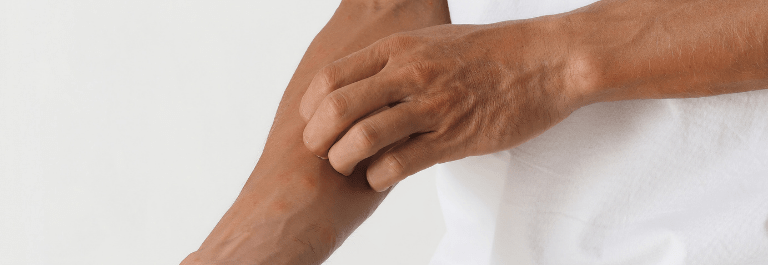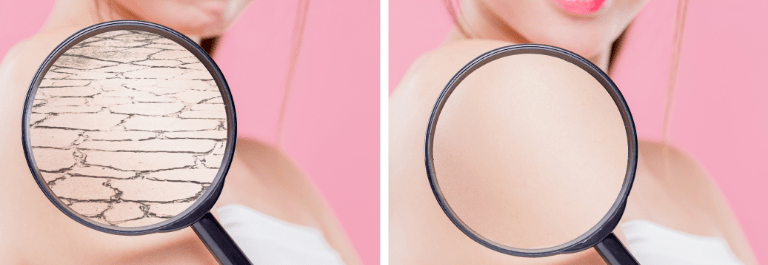If you suffer from a skin rash, you may wonder whether it is contagious or not. Many people suffer from the occasional skin rash and very often, they are not contagious. But unfortunately, that’s not always the case. In this blog post, we’ll explore skin rashes you may encounter and provide information on whether they are contagious or not.
Skin Rashes that Are Contagious
If a skin rash is contagious, it can spread from person to person through direct contact. For example, an infected person may scratch their itchy rash and then touch another individual who is not yet infected.
Itchy skin rashes that are contagious can also spread through indirect contact. Examples of this can be something like ringworm. An unaffected individual can get ringworm simply by walking on a contaminated floor or touching a contaminated surface.
Some other examples of contagious skin rashes include scabies, impetigo, and chicken pox.
The Negative Stigma around Skin Rashes
Unfortunately, there is quite a bit of negative stigma surrounding skin rashes. Many people take one look at visible blisters or scaly patches and automatically assume it’s contagious. They may try to avoid shaking hands or touching that person.
In reality, most of the most common skin conditions aren’t contagious at all.
Skin Rashes that Look Contagious but Aren’t
Let’s take a look at some common skin conditions that may look contagious but actually aren’t.
Eczema: This inflammatory condition affects approximately 10-20% of the world’s population. It’s characterized by patches of red, dry, and scaly skin. In severe cases, blisters may develop and may make skin painful to touch. While eczema can appear anywhere on the body, it commonly develops on the hands, feet, neck, eyelids, and bends of elbows or creases of knees.
Researchers do not know for certainty what causes eczema but it’s believed to be connected to environmental factors and genetics.
Some common eczema triggers include pet fur, dust mites, sweat, stress, certain foods, and fabrics such as nylon and spandex. While relentless scratching can cause eczema to spread to other parts of your own body, it cannot spread from person to person by direct or indirect contact.
Psoriasis: This autoimmune disease results in red patches and silvery scales. It develops because of an overactive immune system that prompts the overproduction of skin cells. These patches typically appear on the elbows, knees, scalp, and lower back. That being said, they can form anywhere on the body like itchy rashes on the chest.
While psoriasis is a chronic condition, symptoms may come and go with varying degrees of severity. The physical appearance of psoriasis can cause low self-esteem for people living with it but it is not contagious.
Rosacea: This is a long-term dermal issue that mainly affects the face, particularly the nose, cheeks, forehead, and chin. It can be triggered by cheese, spicy food, caffeine and alcohol.
Symptoms of rosacea include a permanent blush or small pink or red bumps. It can also be characterized by dry skin and swelling.
Rosacea is not caused by poor hygiene and it is not contagious.
How to Soothe Itchy Skin Rashes
If you have a contagious itchy skin rash, please speak to your doctor or medical professional in order to get proper treatment.
If you have a non-contagious skin rash and want to soothe the itch, we recommend this Organic Manuka Skin Soothing Cream. It’s made with just six ingredients, including the powerful Manuka honey. Because it’s so gentle, it’s perfect for little ones and adults alike. You can even use it on delicate areas like the lips and eyelids!
We also suggest trying this Coconut and Sunflower Oil Soap bar. This fatty cleanser is sure to leave your skin feeling soft and smooth. Feel free to use it as a hand soap throughout the day or as a full body soap.
To protect itchy or sensitive skin on the arms, chest, and back, we recommend this Remedywear ™ long sleeve shirt for adults and kids. The fabric is made with super soft TENCEL and embedded with anti-inflammatory zinc oxide so it not only protects the skin, but also has healing properties.










